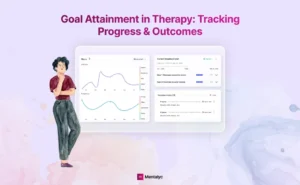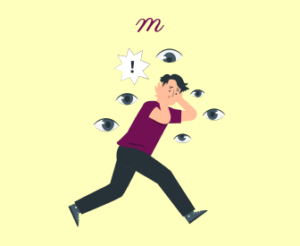Do you often encounter clients who are dissatisfied with generic mental health treatments that fail to address their unique needs? Many individuals seeking mental health care feel disheartened by one-size-fits-all approaches that overlook their personal experiences and challenges. This frustration can lead to disengagement and ineffective treatment outcomes. But there’s a solution: individualized integrative treatment plans. By tailoring your therapeutic strategies to meet each client’s specific needs, you can create a customized approach that genuinely resonates with them. These personalized plans combine various therapeutic methods, addressing each client’s condition’s unique physical, emotional, and psychological aspects. The result? Enhanced treatment effectiveness, greater client satisfaction, and a stronger therapeutic alliance.
Integrating individualized integrative treatment plans into your private practice is not just beneficial for your clients, but it can also transform your practice. Clients who feel heard and understood are likelier to stay engaged and see actual results. This approach can revolutionize your practice, making it a place where clients experience meaningful progress and lasting change. This article will highlight the importance of integrative treatment plans and how they can revolutionize your mental health practice. We’ll delve into the benefits, key components, and real-life success stories that demonstrate the power of personalized mental health care. Get ready to enhance your practice and provide your clients with the individualized care they deserve.
Understanding Integrative Treatment Plans
Designing integrative treatment plans is an impactful method in mental health care. These custom roadmaps incorporate therapeutic techniques to address individual needs, ultimately creating a tailored strategy that amplifies treatment effectiveness.
Detail the Process
Gathering detailed information about the client’s medical history, lifestyle, and mental health symptoms is crucial for developing an effective treatment plan. Conducting a comprehensive assessment is the first step toward helping the client effectively. Here’s how to approach it:
- Interviews: Conduct in-depth interviews to understand the client’s background, presenting issues, and goals.
- Questionnaires: Use standardized questionnaires to gather quantitative data on symptoms and functioning.
- Collaboration: For a holistic view, engage with other healthcare providers, family members, and the client’s support system.
Remember that the assessment process continues after the initial evaluation. Continuously updating assessments is essential. Keeping assessments up to date helps you monitor progress and modify the treatment plan as necessary, ensuring that it remains pertinent and practical.
Why Comprehensive Information is Crucial:
- Holistic Understanding: A thorough assessment provides a complete picture of the client’s mental, physical, and social well-being.
- Customized Care: It allows for the creating of a tailored treatment plan that addresses specific needs and goals.
- Informed Decisions: Enables better decision-making regarding therapeutic approaches and interventions.
Types of Therapies
In creating comprehensive treatment plans, it’s crucial to consider various therapies tailored to each individual’s specific requirements. These may encompass established methodologies, including:
- Cognitive Behavioral Therapy (CBT): This is effective in addressing anxiety and depression by tackling negative thought patterns and behaviors.
- Example: Incorporating CBT with mindfulness practices can equip clients with better tools to manage anxiety by teaching them to stay present while reconceptualizing negative thoughts.
- Dialectical Behavior Therapy (DBT): This therapy is beneficial for individuals with borderline personality disorder, focusing on emotion regulation and interpersonal effectiveness.
- Example: A client with BPD could benefit from DBT sessions supplemented with yoga to bolster emotional regulation.
- Psychodynamic Therapy: This therapy delves into underlying psychological processes and past experiences to gain insight into and resolve current issues.
- Example: Integrating psychodynamic therapy with art therapy can aid clients in expressing and processing unconscious conflicts.
Each of these therapies offers unique strengths, making it possible to create a personalized approach that enhances treatment outcomes.
Brainstorm:
How do you currently assess your clients, and what tools have you found most effective?
A Holistic Approach
Addressing mental health challenges requires considering various factors that influence overall well-being. Developing comprehensive treatment approaches encompassing mental, physical, and lifestyle aspects can result in substantial progress.
Mind-Body Connection
Understanding the close relationship between the mind and body is vital for effective care. Issues like chronic pain and hormonal imbalances can significantly impact mental health. By integrating both physical and psychological therapies into treatment strategies, we can take a more comprehensive approach to improving overall wellness.
Specific Complementary Therapies
Incorporating complementary therapies can significantly enhance traditional treatments, such as:
- Yoga and Meditation: These practices reduce stress and promote emotional well-being.
- Example: A client suffering from anxiety might attend weekly yoga classes to complement their talk therapy sessions.
- Nutritional Counseling: Ensures that dietary choices support mental health and overall well-being.
- Example: Clients with depression may benefit from dietary adjustments that support brain health, such as increased omega-3 fatty acids.
- Acupuncture: May provide relief from symptoms related to stress and anxiety.
- Example: Integrating acupuncture sessions for a client with chronic stress can help alleviate physical tension and promote relaxation.
Integrating these therapies provides a holistic approach that addresses mental and physical health, leading to more comprehensive and sustainable outcomes.
Reflect On:
- What changes in a client’s mental health journey have you noticed that required a shift in your treatment plan?
The Benefits of Individualized Therapy
Customized mental health treatment stands out by catering to each client’s distinctive needs, experiences, and goals rather than using a one-size-fits-all approach.
Personalized Approach
Individualized therapy acknowledges that clients are not just diagnoses but complex individuals with unique stories. This personalized strategy increases the chances of genuine progress and long-term change. Therapists can offer more effective and efficient care by designing treatment plans that tackle individual challenges and build on personal strengths, ultimately leading to faster and more substantial results.
Flexibility and Adaptability
Mental health needs are dynamic, and therapy should be flexible to accommodate these changes. A personalized treatment plan should evolve with the individual, adjusting to their progress and new challenges. This adaptability is essential to ensure that therapy continues to be effective and supportive, promoting ongoing growth and addressing evolving needs.
Empowerment and Engagement
Encouraging clients to shape their treatment plans actively can lead to a greater sense of investment in the process. This active involvement helps foster a feeling of ownership, enhancing motivation and commitment to therapy. When clients understand their personal goals and the steps to achieve them, it can be incredibly empowering, leading to increased engagement and success in the therapeutic journey.
Think About:
- What personal experiences have shown you that a tailored approach works better?
Creating a Personalized Treatment Plan
Creating a personalized treatment plan is crucial in mental health care. It’s essential to tailor the approach to each individual for the best chance of success. Here are some steps to help you develop a plan that is uniquely suited to each person:
Assessment Tools and Techniques
Start by gaining a deep understanding of the client. Use various assessment tools, including clinical interviews, questionnaires, and psychological testing. These methods offer a whole perspective on the client’s requirements, which is essential for developing a personalized plan.
Collaborate and Customize
Collaborate with clients to develop a tailored plan that reflects their needs and aspirations. Integrate various therapy approaches, medication, lifestyle modifications, and complementary therapies to create a customized plan that suits the client’s needs.
Be Flexible and Adaptive
It’s important to remember that a treatment plan should be flexible and adaptable as the client makes progress or faces new obstacles. Regular check-ins and open communication ensure the plan remains relevant and practical.
Individualized Integrative Treatment Plan Template
Client Information
- Name:
- Date of Birth:
- Diagnosis:
- Date of Assessment:
- Therapist/Clinician:
Assessment Summary
- Presenting Issues: Summary of client’s presenting issues
- History: Relevant medical, psychological, and social history
- Client Strengths and Resources: Client’s strengths and support systems
- Goals: Short-term and long-term goals agreed upon with the client
Treatment Components
- Therapeutic Modalities
- Cognitive Behavioral Therapy (CBT): Frequency and goals
- Dialectical Behavior Therapy (DBT): Frequency and goals
- Psychodynamic Therapy: Frequency and goals
- Other Therapies: Specify any other therapeutic approaches
- Medication Management
- Current Medications: List of medications, dosages, and purpose
- Monitoring and Adjustments: Plan for monitoring effectiveness and making adjustments
- Lifestyle and Behavioral Changes
- Exercise: Type and frequency
- Nutrition: Dietary recommendations or changes
- Sleep: Strategies to improve sleep patterns
- Other Changes: Any other relevant lifestyle changes
- Complementary Therapies
- Mindfulness and Meditation: Frequency and goals
- Yoga: Frequency and goals
- Nutritional Counseling: Frequency and goals
- Acupuncture or Other Therapies: Frequency and goals
Client Involvement and Engagement
- Client Responsibilities: Tasks or activities for the client
- Engagement Strategies: Ways to enhance client involvement and motivation
Monitoring and Evaluation
- Progress Reviews: Frequency of progress reviews and evaluation
- Measurement Tools: Tools or methods for tracking progress
- Adjustments: Plan for making adjustments based on progress and feedback
Family and Support System Involvement
- Family Meetings: Frequency and goals for involving family
- Support Strategies: Ways to involve and support the client’s family or support system
Reflect On:
- How do you ensure your clients’ voices are heard in their treatment planning?
Integrating Multiple Treatment Modalities
Integrating multiple treatment modalities is essential for effective mental health care. By combining different approaches, you can create a comprehensive strategy that addresses various aspects of a person’s well-being.
The Power of Combination Therapy
Integrating different therapies is similar to putting together a toolkit. Each approach—cognitive-behavioral therapy, mindfulness practices, medication management, and lifestyle changes—serves a specific purpose. By combining these methods, a comprehensive treatment plan can address various aspects of mental health.
Tailoring the Approach
Personalization is essential. Choose and blend treatments according to each person’s unique requirements and situation. For instance, individuals dealing with anxiety may find relief through a combination of counseling, mindfulness practices, and medication, while others may respond better to art therapy and support groups.
Holistic Benefits
Utilizing a combination of different therapeutic approaches ensures comprehensive care for mental well-being. This all-encompassing method encourages lasting progress and encourages individuals to take an active role in their recovery, leading to a well-rounded treatment strategy that supports the mind, body, and soul.
Brainstorm:
- What combination of therapies has been most effective in your practice?
The Role of Technology in Individualized Integrative Treatment
Technology is vital in improving personalized, integrated treatment strategies in the digital era. Digital tools and telehealth services provide greater accessibility and convenience.
Digital Tools
Leverage technology to develop inclusive and readily available treatment plans. Platforms such as electronic health records (EHR) simplify the documentation process, while applications and online resources can aid in monitoring progress, organizing appointments, and enabling communication between clients and therapists.
Telehealth Services
Telehealth provides flexibility and accessibility, making therapy more convenient for clients. This is especially helpful for people with mobility issues, remote areas, and busy schedules.
Online Resources and Support
Access to online resources, such as educational materials, support groups, and self-help tools, can complement traditional therapy and provide clients with additional support between sessions. Encourage clients to utilize reputable websites and apps to enhance their treatment experience.
Consider:
- How has technology improved your ability to monitor and adjust treatment plans?
Conclusion
Individualizing integrative treatment plans is crucial in mental health care. Remember, you’re not just treating a diagnosis; you’re helping a unique person with their story. Tailoring treatment to fit each patient like a glove gives them the best shot at recovery and growth. It’s not always easy, but it’s worth it. As you move forward in your practice, keep pushing for personalized care. Your patients will thank you, and you’ll likely see better outcomes.
Are you seeking ways to enhance your practice using state-of-the-art technology? Mentalyc’s AI service can help you create more effective, personalized, and integrated progress notes for your clients. Sign up for a free trial today and see how our AI can help you deliver the best possible care. Visit our website to learn more about transforming your approach to mental health treatment.
FAQ on Individualizing Integrative Treatment Plans:
What is an individualized integrative treatment plan?
An individualized integrative treatment plan is a personalized approach to mental health care that combines various therapies and interventions tailored to a client’s needs. This method offers a customized strategy that fits each individual’s well-being, much like a custom-made suit.
How does it differ from standard treatment?
Unlike standardized treatments, individualized plans consider the client’s background, symptoms, and preferences, which use the same approach for all clients. These flexible and adaptable plans allow adjustments as the client’s needs change to provide the most effective care.
What components might be included?
An individualized integrative treatment plan may include a combination of traditional therapies such as Cognitive Behavioral Therapy (CBT) or psychodynamic therapy, medication management, lifestyle changes, and complementary treatments like mindfulness practices or art therapy. The goal is to customize each component to best address the client’s needs.
How involved will my client be in creating their plan?
Clients play an active role in creating their treatment plans. Their input is crucial for selecting approaches that resonate with them and for setting achievable goals. This collaborative process enhances client engagement and ensures the plan aligns with their personal preferences and objectives.
Is there evidence supporting this approach?
Substantial research supports individualized, integrative approaches, which, compared to standardized methods, lead to improved outcomes such as symptom reduction, higher patient satisfaction, and greater treatment adherence.
What are the costs associated with these plans?
The cost of individualized, integrative treatment plans may vary depending on the included therapies and the length of treatment. Many therapists offer sliding scale fees or collaborate with insurance providers to make these plans more affordable and accessible.
How can family and support systems be involved?
Family and support systems can significantly contribute to the success of individualized treatment plans. Engaging loved ones in treatment can provide additional support and motivation, helping clients stay committed and engaged in their therapeutic journey.
How can you determine if an individualized integrative treatment plan suits a client?
Evaluating whether a personalized, integrated treatment plan is suitable involves assessing the client’s preferences and treatment history. Clinical judgment, thorough assessment, and ongoing evaluation help determine whether this approach will benefit. Collaborating with clients to understand their goals and expectations is crucial.
What are some common challenges in implementing individualized integrative treatment plans, and how can they be addressed?
Common challenges include managing client expectations, coordinating multiple therapies, and ensuring consistent communication among all parties involved. Setting clear goals, maintaining open communication, and regularly reviewing and adjusting the plan to address these challenges is essential. Utilizing technology for monitoring and coordination can also enhance the effectiveness of these plans.
How can progress be monitored and measured in individualized integrative treatment plans?
Progress can be tracked through regular check-ins, assessments, and feedback from the client. Using standardized tools, client self-reports, and periodic evaluations helps to measure the plan’s effectiveness. Adjustments should be made based on the client’s feedback and progress toward their goals.
Resources:
- Alberta Health Services. (n.d.).Integrated Treatment Planning: A Framework for Effective Intervention. https://www.albertahealthservices.ca/assets/info/amh/if-amh-ecc-integrated-treatment-planning.pdf
- American Psychological Association. (2013). Integrated Health Care. https://www.apa.org/health/integrated-health-care
- Kelly, T. M., & Daley, D. C. (n.d.).Integrated Treatment of Substance Use and Psychiatric Disorders. PubMed Central. https://www.ncbi.nlm.nih.gov/pmc/articles/PMC3753025/
- Mayo Clinic. (2024, January 16).Integrative Medicine and Health. https://www.mayoclinic.org/departments-centers/integrative-medicine-health/sections/overview/ovc-20464567
- Substance Abuse and Mental Health Services Administration. (n.d.). Building Your Program: A Step-by-Step Guide to Developing Effective Mental Health Services. https://store.samhsa.gov/sites/default/files/ebp-kit-building-your-program-10112019
Disclaimer
All examples of mental health documentation are fictional and for informational purposes only.
Why other mental health professionals love Mentalyc

“If I were recommending this software to a colleague, I would tell them that it is the best thing that they could do for their practice.”
Licensed Professional Counselor

“It immediately changed my quality of life, personally and professionally.”
Owner/Independently Licensed Marriage & Family Therapist (LMFT)

“For anyone hesitant: this is a lifesaver. It will change your life, and you have more time to be present with your patients.”
Licensed Clinical Social Worker

“Do yourself a favor, make your life easier. I found Mentalyc to be one of the best tools that I’ve ever used.”
Licensed Marriage and Family Therapist







